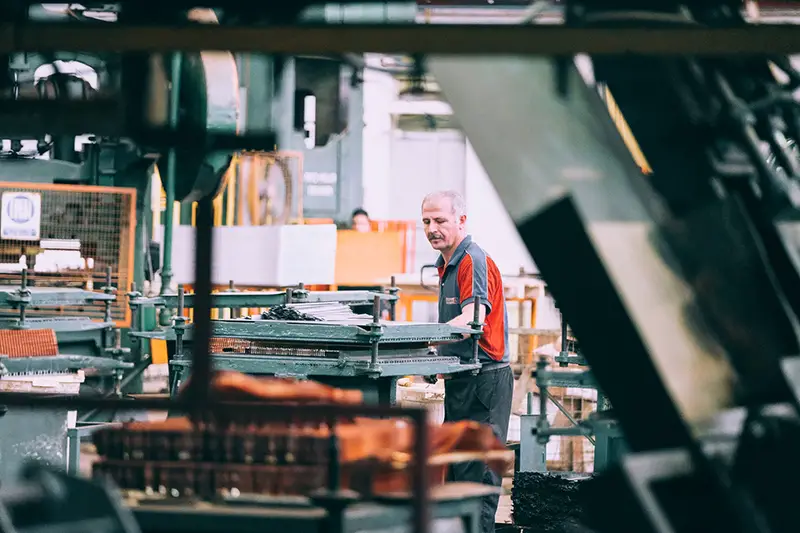Click here to get this post in PDF
Factory work can be insanely dangerous but knowing exactly why this type of work is risky can reduce your exposure and help you summon the courage to refuse to do overly dangerous work.
Here are some of the general public’s common attitudes towards factory work that have fueled work-related accidents over the years:
- All jobs come with safety risks.
- Each worker must determine how best to stay safe.
- There is always a trade-off between safety and productivity.
- The higher the risk, the greater the reward will be in job security, pay rate, and other perks.
These attitudes are demonstrably true, but their ultimate meaning is false because they encourage worker acceptance of high-risk jobs.
What Makes Factory Work So Dangerous?
There are very real physical dangers in factory work — risks of injuries and the cumulative effects of toxic agent exposure. Not all workers are subject to all the risks but being aware of the dangers can help you to avoid them. Some of the top reasons why factory work is so dangerous include the following:
1. Repetitive Strain and Carpal Tunnel Injuries
Constant repetitive movements on assembly lines may cause a condition called repetitive strain or upper limb disorder. The health condition’s symptoms include pain in the forearms, elbows, wrists, hands, neck, and shoulders. Victims often feel tenderness, tingling, throbbing, weakness, numbness, and cramps.
Carpal Tunnel Syndrome, also known as median nerve compression, is a condition that is also associated with repetitive hand movements. The median nerve becomes compressed due to the repetitive movements, and the nerve runs the length of the arms and controls movement and feeling in your thumb and all fingers except for the pinkie. Symptoms of the condition include numbness, pain, and loss of movement.
2. Accidents with Equipment
Using and adjusting factory equipment may lead to accidents that range from small scratches to broken bones. Common injuries include broken bones, injuries to soft tissues, spinal cord injuries, burns, and corrosions. Injuries to muscles, ligaments, and tendons can be more debilitating than simple broken bones, and even office workers aren’t exempt from repetitive strain injuries and carpal tunnel syndrome.
3. Chemical and Biological Hazards
Chemical and biological hazards abound in the post-industrial workplace. These include toxic chemical exposure and exposure to heat, noise, vibrations, and pathogens that pose risks to your life and health.
4. Factory Fires
The risk of factory fires is a much smaller percentage than in the past because of advances made in safety training and fire-prevention equipment, but property losses and damages due to fire totaled $508 million in 2018.
Flammable gases and liquids only need a small flashpoint to turn quickly into a blazing inferno. For example, the disastrous 1988 explosion in Henderson, Nevada, at a rocket fuel plant was so powerful that it caused an earthquake that registered 3.5 on the Richter scale.
5. Poor Ventilation
Inadequate ventilation may cause a host of health problems ranging from the common cold to severe lung damage. You could also get increased exposure to chemical contaminants, pesticides, microbes, and dust that may trigger asthma attacks.
Getting Fair Compensation for Your Injuries
If you have been injured on the job or suspect you’ve developed a health disorder due to the working conditions in a factory, you should contact a workers’ compensation attorney immediately to get the compensation you are due.
According to some of the best Pittsburgh workers’ compensation attorneys, a seasoned workers’ comp lawyer can help you retrieve both economic damages, like out-of-pocket medical expenses, rehabilitation costs, and lost wages, AND non-economic damages, such as your physical pain and emotional suffering caused by the accident along with the loss of enjoyment of life in the case of permanent disability.
Your employer and their insurance carrier might not play fair when it comes to compensating you for your work-related injuries and loss, so better let a professional handle your case.
Also read: Britain’s Most Dangerous Jobs
About the Author
With a BA in communications and paralegal experience, Irma C. Dengler decided to combine her skills. In the past, when she was involved in proceedings of her own, she witnessed firsthand the weight of legal language. A convoluted terminology can easily disarm the average American. Therefore, she set off to empower her readers by making the law more accessible to them. Although she has covered all areas of civil and criminal law, insurance-related issues, and her area of specialty are personal injury cases.
Image source: Unsplash.com


